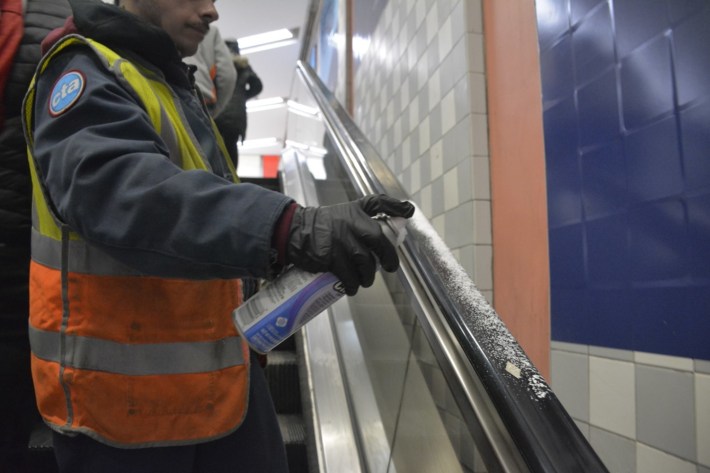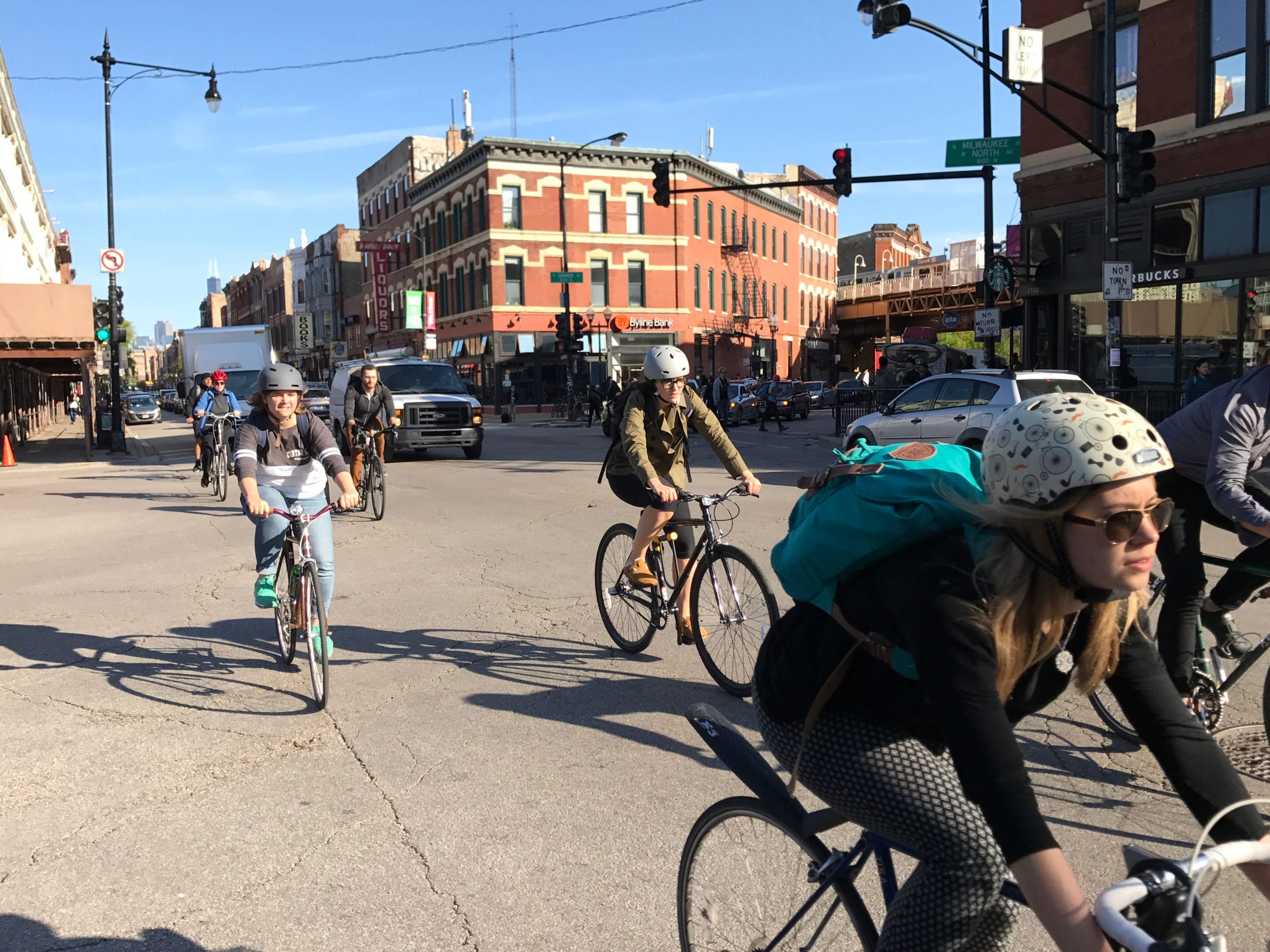Update 3/13/20: The Chicago Department of Transportation confirmed that there has been a huge spike in Divvy ridership this month compared to the same time last year, although it's not clear how much of that was inspired by warm temperatures, and how much was due to people choosing bicycling as a safe way to commute during the pandemic. The total number of Divvy check-outs from March 1-11 of 2019, including members and casual rentals, was 40,078. That number more than doubled from March 1-11 of this year, to 82,112.
If you're not up to date on why it's crucial to protect yourself and others from the coronavirus, even if you're relatively young and healthy, and how to reduce your chances of getting and spreading the disease, please read the articles linked in this sentence now. They're a lot more important that this Streetsblog post.
That said, amid all the uncertainty and anxiety associated with the pandemic, perhaps we can take a bit of comfort from this fact: It's likely that a byproduct of the outbreak will be a shift towards more sustainable commuting and travel practices, namely walking, biking, and telecommuting.
Unfortunately the Chicago region has already seen a downturn in train use as people seek to limit their exposure to the virus and businesses ask employees to work from home. Metra and Amtrak are reporting fewer riders, and Metra is considering reducing the number of trains. However, the CTA says it hasn't seen a dropoff in ridership over the last few weeks, perhaps because a lower percentage of riders are white-collar workers who have the option of telecommuting or can afford to drive to their offices.
Metra and the CTA are assuring customers that they're taking the necessary precautions to help prevent the spread of the illness. The commuter railroad is asking cleaning personnel to give extra attention to parts of the railcars that are touched by many riders, like doors, handrails, and armrests, and it will be adding extra cleaning crews starting this weekend.
The CTA isn't adjusting its cleaning protocols, but it says its normal cleaning routines, which includes daily cleanings of buses, trains, and stations, plus regularly scheduled deep cleanings, should be sufficient to help keep customers safe. Special attention is paid to disinfecting high-touch surfaces like Ventra machines, turnstiles, handrails, escalator railings, and seats.

The transit agencies are asking customers to take precautions such as effectively washing your hands on a regular basis, covering your mouth when you cough, avoiding touching your eyes, nose, and mouth, and not using public transportation if you don't feel well. If you can help it, it's also a good idea to avoid sitting close to other passengers.
But as residents seek to avoid their exposure to strangers, it's likely that many people are replacing trips that they would normally take on transit with private car or ride-hail trips. That, plus the general decrease in work commuting, is definitely not going to be good for the transit agencies' bottom line.
But to look on the bright side, the pandemic is corresponding with the warmer temperatures that mark the start of peak bike season, and more Chicagoans are likely to try bike commuting as a form or transportation with a low risk of exposure to the virus. We already have numbers suggesting that's happening in New York City.
After Mayor Bill DeBlasio recommended biking or walking to work as an alternative to taking crowded trains last Sunday, on Wednesday the city's transportation department reported a more than 50 percent spike in bike traffic on all bridges connecting Manhattan to Queens and Brooklyn. And yesterday Citi Bike announced that ridership is up 67 percent so far in March, compared to the same period last year when no one had heard of coronavirus.
Hopefully a few months from now the pandemic will be behind us, but the positive trends of more people walking and biking to work or telecommuting will be a permanent thing. In the meantime, if you're feeling bummed about the cancellation of concerts, sporting events, and other mass gatherings, you can always take solace in the simple, and relatively safe, pleasures of a stroll, wheelchair excursion, roller skate, or bike ride on the lakefront or in a park or forest preserve.




